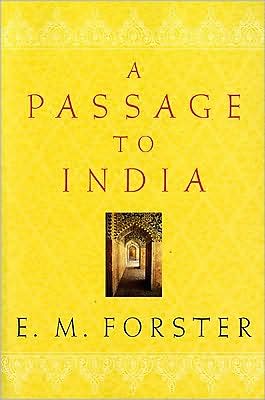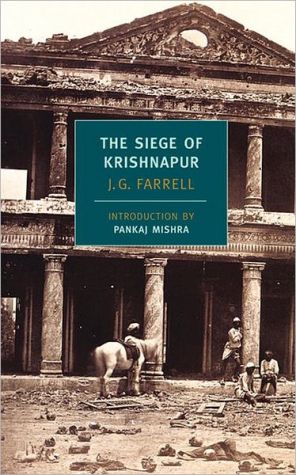What the Body Remembers
With her father in debt and her mother dead, it is with elation that 16-year-old Roop learns she is to become the second wife of Sardarji, a wealthy Sikh landowner whose first wife, Satya, has failed to bear him a child. Roop believes that the strong-willed Satya will treat her as a sister, but their relationship swiftly becomes ominous and complicated, especially when tensions between Hindus and Muslims set in motion the turbulent period of India's history known as Partition.\ Author...
Search in google:
Roop is a village girl in Punjab, India, in 1937. The coming partition between India and Pakistan is going to change the world she lives in forever, but she has more immediate concerns. Her mother is dead and her father deep in debt, so it is with elation that she learns she is to become the second wife of a wealthy Sikh landowner, Sardarji, twenty-five years her senior. Sardarji's first wife, Satya, is forty-two years old and has failed to bear him any children. Roop initially believes that Satys will treat her as a sister, but their relationship becomes far more complicated and ominous as they begin to struggle for control over the children to be born and for the affections of their husband.Publishers WeeklyThe dramatic and brutal story behind the 1947 partition of India, as played out in the region of Punjab, is the compelling backdrop for this stunning first novel that entwines the fate of three remarkable characters: Sardarji, a wealthy Sikh landowner whose heart is in India, but whose head is in England; Satya, his constantly scheming, feisty wife who lives for her husband but cannot give him children; and Roop, Sardarji's second, much younger wife, married for the express purpose of providing the family with an heir. Intensely atmospheric, the novel contains lyrical descriptions of daily life in a village with dusty fields of maize and clusters of homes; the cinnamon, anise and fennel smell of Satya's kitchen; Sardarji's Oxfordian attire and his spindly-legged English furniture. Baldwin, who grew up in India, skillfully creates an exotic milieu where women are sheltered from the outside world and struggle for influence over their families. As headstrong Satya, more involved in her husband's affairs than most of her peers, and demure Roop, trained to exercise traditional feminine wiles, battle for Sardarji's favor and the children Roop soon produces, Sardarji is increasingly distracted by the furor over independence and the future of the Indian state. Baldwin achieves an artistic triumph on two levels, capturing the churning political and religious history of modern India and Pakistan as she explores memorable transformations: of Satya, from a dominating force in her family to a lonely outsider; of Sardarji, from an idealistic, ambitious engineer to a hardened, more realistic civil servant; and finally, of Roop, from an arrogant, self-centered daughter to a selfless wife and mother who becomes the backbone of her family. 6-city author tour; simultaneous publication in the U.K. and Canada; rights sold in Germany, Italy, France. (Oct.) Copyright 1999 Cahners Business Information.
\ \ \ \ Excerpt\ \ \ Rawalpindi, Undivided India, 1937\ \ \ Satya's heart is black and dense as a stone within her. She tells herself she pities Roop, but hears laughter answering her—how difficult it is to deceive yourself when you have known yourself a full forty-two years.\ She has a servant summon Roop to her sitting room in the afternoon, when Sardarji has gone to a canal engineers' meeting. When she comes before her, Satya does not speak, but rises from the divan and takes Roop's chunni from her shoulders, as if in welcome, so she can study the girl. She takes Roop's chin and raises her face to the afternoon sun, willing it to blind her, but it will do her no such service. She studies Roop's features, her Pothwari skin, smooth as a new apricot beckoning from the limb of a tall tree, her wide, heavily lashed brown eyes. Unlike Satya's grey ones, they are demurely lowered, innocent.\ A man could tell those eyes anything and they would believe him, a man could kiss those red lips for hours and they would look fuller and more luscious for the bruising.\ Roop's hair is long, to her thighs, softened by amla and scented with coconut. Unlike Satya's, it has no need yet for henna. Satya lifts Roop's plait around her shoulder and examines the tip—too few split ends; it has felt the scissors once at least, if not more.\ Roop is a new Sikh, then, an uncomprehending carrier of the orthodoxy resurging in them all. Hindus, Sikhs, Muslims, they are like the three strands of her hair, a strong rope against the British, but separate nevertheless.\ She unbinds Roop's hair. It falls, a moonlit river, down the valleyof her spine.\ She examines Roop's teeth and finds all of them whole, the back ones barely visible. She hopes that as they come they will bring pain. Roop's tongue is soft and a healthy pink and from it a man will hear no truths he cannot explain away. She presses her fingers to Roop's cheekbones, they are high, like her own. Some remnant of Afghan blood in their past; in other circumstances she might have been Roop's aunt or cousin.\ Satya's hands drop to Roop's neck and encircle it lightly, for she is not trying to frighten her. And she sees Sardarji has given her a kantha necklace, one of her own. She knows the gold of this one well; she ordered it from the goldsmith herself, she knows every link in it and the sheen of its red enamel. She wore it last to a party full of Europeans. Its brilliance and its weight had comforted her, compensation for her tongue-tied state; the European ladies ignored her once they found she spoke no English.\ She sees her kantha now, covering the hollow at Roop's neck and she wants to press her thumbnail in that hollow till Roop's red blood spurts and drips over them both.\ She wants this.\ She moves her hands, with no sign she recognizes the kantha, no hint she knows that Roop standing before her is a silent thief.\ With such a tremulous placating smile.\ Satya examines Roop's brow. Time is ploughing her own in three horizontal furrows, deepening by the day, but Roop's is still smooth. She pulls Roop's hair back over her ears and sees her own earrings. They are the ones Sardarji gave Satya, after her first pilgrimage to the first ineffectual sant, pleading for prayers. Satya knows these earrings well: three tiers of Burmese rubies surrounded by diamonds—real diamonds, not white sapphires—red-hearted flower shapes ending in large Basra teardrop pearls.\ And Roop is wearing them.\ Satya wants to tear them from the girl's ears, watch as Roop's tender lobes elongate and rip apart, wants to take back what is hers, rightfully hers.\ But she moves her hands away.\ "Come lie with me in the afternoons. You are alone on your side of the house, I am alone on my side. My pukkhawalla is better—he's from my village, our men are strong."\ Roop stands, uncomprehending. If she had been a blood-niece, or a cousin-sister, Satya would shout at her to stay away, to turn now and run before she gets hurt. And if Satya had been Roop's mother, Roop would be her daughter and none of this would have been necessary.\ "Come," she says again. "It is useless for me to fight Sardarji's will; he is my husband, he has married you. Somehow I must accept that—and you."\ Roop's face lights up like a diya at Diwali.\ "Oh, Bhainji."\ Sister.\ Satya does not feel sisterly at all.\ \ \ "Oh, Bhainji," Roop says. "I'm so glad. I told Sardarji, I will be no trouble, I will be just like a younger sister."\ And her silly tears fall on Satya's hand as she leads the girl to the bed.\ Satya places herself in the path of the light from the inner courtyard, dismissing the servants hovering in attendance on the gallery that runs past her rooms. She lowers the reed chics past the casement till the sitting room, cool and dark, holds the sun at bay. The jute sack covering the block of ice in the corner slips to the floor. Exposed, the ice absorbs afternoon heat, weeps a dark puddle over the polished wood.\ On the gallery, a pukkhawalla spits a red stream of paan, squats, his back to the wall. With a rope over one shoulder, he leans into pulling rhythm.\ Back and forth, back and forth.\ The rope worms through the wall and over a pulley near the ceiling, sets the huge wing of silk above the two women creaking.\ Back and forth, back and forth.\ The breeze from the pukkha moves from Satya to Roop and back again, doing nothing to cool Satya. She is white-hot inside, though if she could speak it out loud, it would be better to call it hurt or pain.\ "Come, lie down," Satya says.\ She leads Roop from the sitting room to her bedroom and places a soft pillow beneath Roop's head to cradle her ruby earrings. She hears Roop's jutis plop to the floor behind her as the young girl draws her feet up, kundalini-snake on Satya's bed. She leans over Roop the way Sardarji leaned over Satya the years she cried for children, brushing tears from Roop's heavy lashes with her lips. She strokes her head as a mother would, says, "Sleep, little one, we are together now."\ And Roop sleeps, overcome by the afternoon heat.\ While Satya watches her.\ So trusting, so very stupid.\ On Roop's arm, thrown back over her head, are Satya's gold bangles, and on her fingers, Satya's rings. Her feet are small and narrow for her height. Around her ankles she wears Satya's gold panjebs. On her toes, Satya's toe rings.\ Satya could unfasten them from Roop while she sleeps, but thievery has never been a trait in her family.\ Why is Roop so trusting? How can she be so confident she will produce a child? How can Roop not look at her, Satya, and think, "This is what I might become"? How can she not see danger in blundering deep into the tigress's den to steal her chance of ever bearing a cub?\ Had Satya been like her once? Had she ever been so witless and yet so charming?\ Young women these days think they are invincible, that they have only to smile and good things will happen to them.\ Look at me, she wants to tell her. Barren, but still useful; she manages Sardarji's whole estate. Does Roop think it an easy task? Does Roop think it means just giving orders?\ "No, little 'sister,'" she will say, "Sardarji's mukhtiar, Manager Abdul Aziz, does my bidding because he respects my judgment, he knows he cannot cheat me, I am too watchful. Not a pai of Sardarji's money is spent on mere ornamentation or given to the undeserving."\ The money she gave to the sants, though . . . that was a contribution to their future.\ Perhaps Sardarji felt she gave the holy men too much—then he had only to say one word! One word in her ear and she would not have spent another pai on intercessors, but would have prayed to Vaheguru herself.\ Only, she has never felt that Vaheguru listens to a woman's prayers.\ When Sardarji's sister, Toshi—that churail! that witch!—when she began her insinuations that Sardarji should marry again, Satya laughed. Said, "Yes, what a good idea!"\ And she said she would find a good Sikh girl herself, a woman for her husband.\ She said this for ten years while her heart sank lower and lower and her body betrayed her every moon-month with its bleeding. And in that time, the man who could best protect her, her father, lost his power. Thin, maudlin, lazy—that is not a man. When the British turned land rights to paper, he could prove nothing, not even fitness for working! He lost the land. Never even knew it until he tried renewing his land pledges for more liquor, more opium, then more liquor. By then it was too late. In the end he locked himself in a room with all the British-supplied gin he could muster and drank himself to death—one gulp, one drink, next drink, next gulp.\ When he was gone, Satya's only brother sold the last of the land to buy a lorry and sent their mother, practical, accepting old Bebeji, to live with a cousin. He lived in that lorry only three days before a band of dacoits drove him from it and left his robbed, bleeding corpse half hidden in a wheat field by the roadside. A Sikh tenant-farmer's wheat field, not even some high-up landowner's wheat field! What a way to die: young, and for no reason. Not even a martyr's death, or a soldier's. Just a useless, meaningless death.\ Satya will not die that way.\ No, when she dies there will be a reason.
\ Publishers Weekly\ - Publisher's Weekly\ The dramatic and brutal story behind the 1947 partition of India, as played out in the region of Punjab, is the compelling backdrop for this stunning first novel that entwines the fate of three remarkable characters: Sardarji, a wealthy Sikh landowner whose heart is in India, but whose head is in England; Satya, his constantly scheming, feisty wife who lives for her husband but cannot give him children; and Roop, Sardarji's second, much younger wife, married for the express purpose of providing the family with an heir. Intensely atmospheric, the novel contains lyrical descriptions of daily life in a village with dusty fields of maize and clusters of homes; the cinnamon, anise and fennel smell of Satya's kitchen; Sardarji's Oxfordian attire and his spindly-legged English furniture. Baldwin, who grew up in India, skillfully creates an exotic milieu where women are sheltered from the outside world and struggle for influence over their families. As headstrong Satya, more involved in her husband's affairs than most of her peers, and demure Roop, trained to exercise traditional feminine wiles, battle for Sardarji's favor and the children Roop soon produces, Sardarji is increasingly distracted by the furor over independence and the future of the Indian state. Baldwin achieves an artistic triumph on two levels, capturing the churning political and religious history of modern India and Pakistan as she explores memorable transformations: of Satya, from a dominating force in her family to a lonely outsider; of Sardarji, from an idealistic, ambitious engineer to a hardened, more realistic civil servant; and finally, of Roop, from an arrogant, self-centered daughter to a selfless wife and mother who becomes the backbone of her family. 6-city author tour; simultaneous publication in the U.K. and Canada; rights sold in Germany, Italy, France. (Oct.) Copyright 1999 Cahners Business Information.\ \ \ \ \ Library JournalCanadian-born Baldwin, of Indian descent, lives in Milwaukee with her Irish American husband but sets her debut novel in an India soon to be torn by partition. More intimately, the story concerns the relationship between the two wives of a Sikh landowner. Copyright 1999 Cahners Business Information.\ \ \ New York Times Book ReviewIn What the Body Remembers, with her sharp focus on women in such turmoil, Baldwin offers us a moving and engaging look at 20th century India's most troubled years.\ —Ron Carlson\ \








